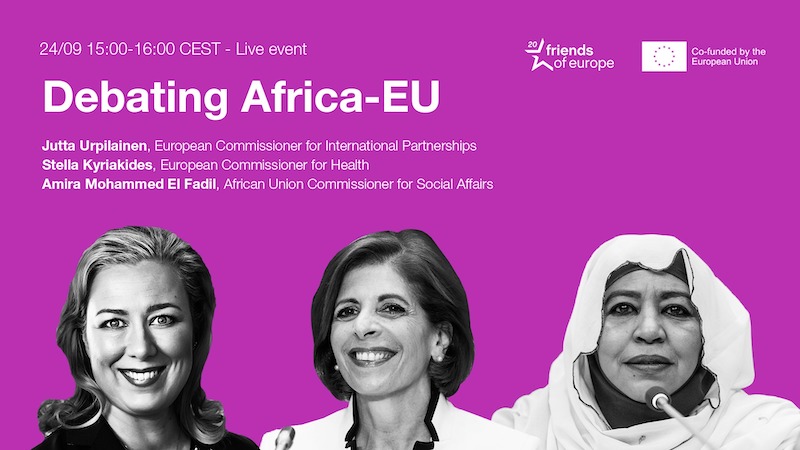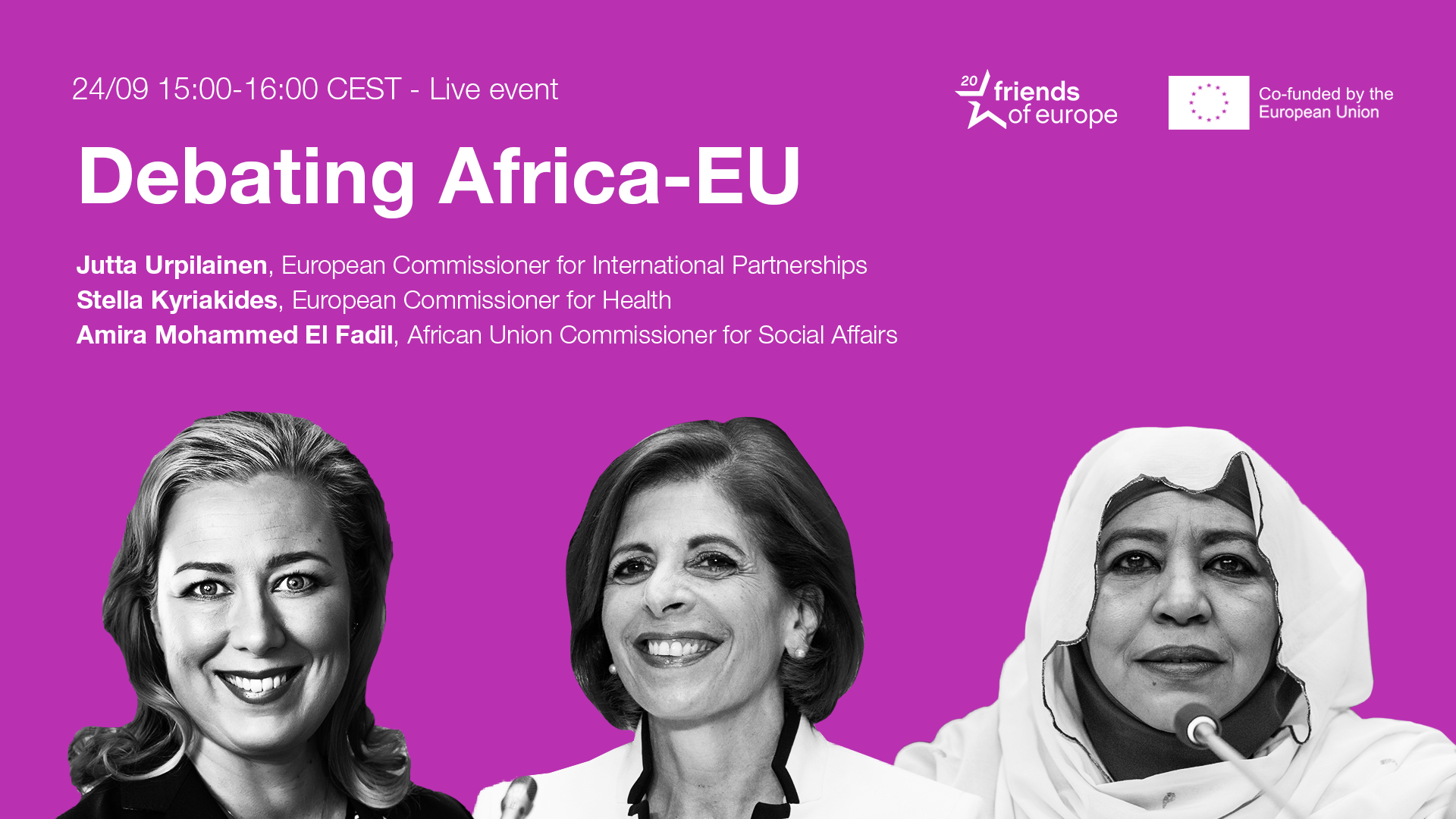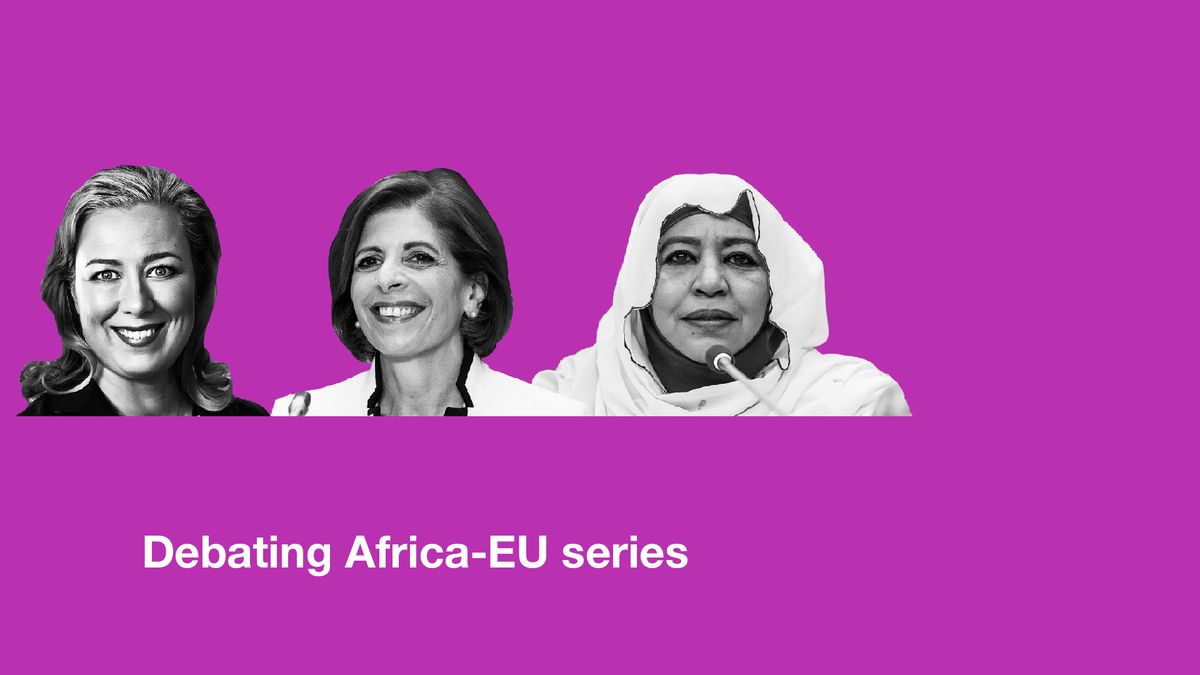
Summary
COVID-19 has shown the world that solidarity among nations and regions is crucial, with Europe and Africa taking a lead in practical cooperation to contain the pandemic and mitigate its economic impact, speakers at the latest ‘Debating Africa-EU’ online event said Thursday.
“Multilateralism is vital to our success and we need to work together, with all the European Union agencies, with the WHO, [and] of course all of the agencies on the African continent,” (20:30) said Stella Kyriakides, European Commissioner for Health.
“Viruses know no borders and we really need to pull together and support each other in every corner of the globe to come out of this pandemic,” (20:58) she added.
Kyriakides was among senior officials from the European Union and African Union who are joining key stakeholders, business figures and civil society representatives from both continents in the ‘Debating Africa-EU’ series. This is intended to feed into preparations for the AU-EU summit scheduled next year.
Besides cooperation among public authorities, speakers from both Africa and Europe highlighted the importance of authorities working together with the private sector. They pointed to success stories which have boosted access to protective equipment and medicines in Europe and set up a digital platform for medical purchases in Africa.
To further boost the anti-pandemic fight, companies on both sides of the Mediterranean should team up more, argued Amira Mohammed El Fadil, African Union Commissioner for Social Affairs.
“We need links between [the] private sector in Europe [and] Africa, this is what we need to speak about … how can we make sure, within the partnership, we can link the two,” she told the debate.
There was broad agreement for increased funding to produce a vaccine against the coronavirus and for longer-term efforts to improve disease prevention and healthcare post-COVID-10.
Those efforts should be included in a broader drive to bolster African development, which has been set back by the pandemic, and to ensure recovery plans embrace the needs of young people, women and migrants.
To help accelerate that development, the EU-Africa summit is due to adopt a strategy focused on the green transition and digital transformation that takes relations between the two continents to a new level, well beyond the traditional focus on aid.
“I am very proud of our Team Europe response in Africa. We have, collectively with our member states […] allocated around €8 bn in support to Africa, but it is our job now to look to the long-term solutions, especially for Africa’s youth,” (2:47) said Jutta Urpilainen, European Commissioner for International Partnerships.
“We must drive forward social and human development with new opportunities. Those opportunities are the green and digital transformations … as well as the African demographic development.”
About
As Africa and Europe seek to re-set their partnership, Friends of Europe is engaging with a diverse range of stakeholders across both continents to understand the long-term vision and the converging and diverging priorities at the heart of this new cooperation.
Africa and Europe have a shared interest and much to gain from one another in accelerating the progress of the global agenda for sustainable development and working together to address the challenges posed by the COVID-19 pandemic. The health crisis has revealed the vulnerability and fragility of growth models across both continents whilst at the same time showcasing the power that digital technologies, robust industries, innovation ecosystems and integrated digital economies can have in building resilience and finding solutions to current and future shocks.
Through its “Debating Africa-EU” series, Friends of Europe is focused on engaging its partners, the African Union Commission and the new EU College of Commissioners around their vision and priorities for EU-Africa cooperation. In response to the Joint Communication, Towards a comprehensive Strategy with Africa, this series serves as a consultative exercise for stakeholders and partners from both continents to voice their perspectives on the future of the relationship. Following the first three debates of 30 June, 10 September, and 17 September, the fourth ‘In Conversation With’ in this series takes place on September 24 with the European Commissioner for Health, Stella Kyriakides, and the African Union Commissioner for Social Affairs, H.E. Amira Mohammed El Fadil. The strategic focus of the discussion will be on “Health, welfare and prosperity: an EU-Africa partnership for a people-centred approach to human development”.
Related content:
News
Initiatives
Past Event Recordings
- A new era of digital cooperation: embracing Africa and Europe’s 4th Industrial Revolution
- Creating a mutually beneficial partnership for Africa-Europe: Building a greener and fairer future
- The Next Generation of Africa Europe Relations, with Commissioner Jutta Urpilainen
- Strategic conversation with Vera Songwe, Executive Secretary of the United Nations Economic Commission for Africa (UNECA)
- Strategic conversation with Ifeyinwa Ugochukwu, Chief Executive Officer of the Tony Elumelu Foundation
Our events include photos, audio and video recording that we might use for promotional purposes. By registering, you give your permission to use your image. Should you have any questions, please contact us.
Schedule
The proposed Strategy with Africa outlines the need for Europe to partner with Africa to rapidly enhance knowledge and skills, particularly for women and youth, protecting and improving social rights, and eradicating child labour. This puts Human Development, the cornerstone for sustainable development, at the heart of the Partnership. Creating decent work opportunities will enable Africa’s rapidly growing young population to transition from the informal to the formal sector, which is especially important for women and girls. Decent work requires health and safety at work, inclusive social protection systems, universal health coverage, access to quality health services, and fighting against inequality and, discrimination, child labour and forced labour. Human development is also intertwined with forced migration. Lack of access to basic services and work opportunities due to financial, geographic, or other structural barriers serve as ‘push’ factors for people to move intra and internationally, and these journeys can expose migrants to health risks. Partnership between Europe and Africa through investment in health and education with the goal of universal access to basic services will increase opportunities for decent work, reduce inequalities (particularly gender-based inequalities), lessen negative drivers of migration, and ultimately serve as a key stepping stone on the road to eradicating poverty.
- How has the COVID-19 pandemic impacted people’s livelihoods, food security, and health? What effect do we expect this to have on migratory flows?
- How will investing in human development, including nutrition, improve the chances for girls’ and women’s social mobility?
- How can Africa and Europe work together to broaden the formal labour market in Africa and create decent work opportunities that support human development?
- Can greater connectivity infrastructure across Africa improve human development?
- Can policies such as ‘right to work’ and ‘recourse to public funds’ be put in place to provide long-term support for asylum-seekers and refugees in Africa?
- How does increased access to mobility improve opportunities for women and girls in particular?
Moderator
Dharmendra Kanani
Chief Operating Officer and Chief Spokesperson of Friends of Europe
Speakers
Jutta Urpilainen
European Commissioner for International Partnerships
Stella Kyriakides
European Commissioner for Health and Food Safety
Amira Mohammed El Fadil
African Union Commissioner for Social Affairs
Speakers
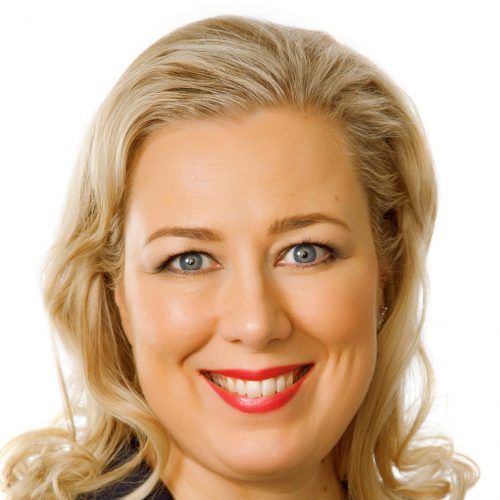
European Commissioner for International Partnerships
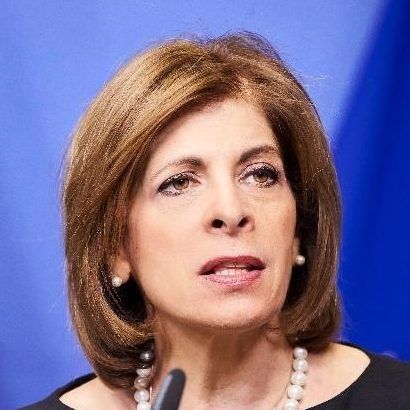
European Commissioner for Health and Food Safety
Stella Kyriakides leads the Commission’s work to coordinate the EU’s health response to COVID-19. She is responsible for the establishment of a strong European Health Union and Europe’s Beating Cancer Plan. She is leading the new ‘Farm to Fork’ strategy for sustainable food. Her responsibilities include enforcing EU food, animal welfare, and animal and plant health laws. Previously, Kyriakides was a clinical psychologist for the Cypriot Ministry of Health. She served in the Cypriot parliament for the Democratic Rally party, of which she was the vice-president. She is also the former head of the Cyprus Delegation to the Parliamentary Assembly of the Council of Europe (PACE) and former president of the PACE.
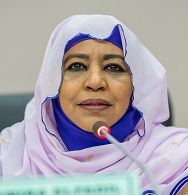
African Union Commissioner for Social Affairs
Partners

Continue
the debate on
- Debating Europe
